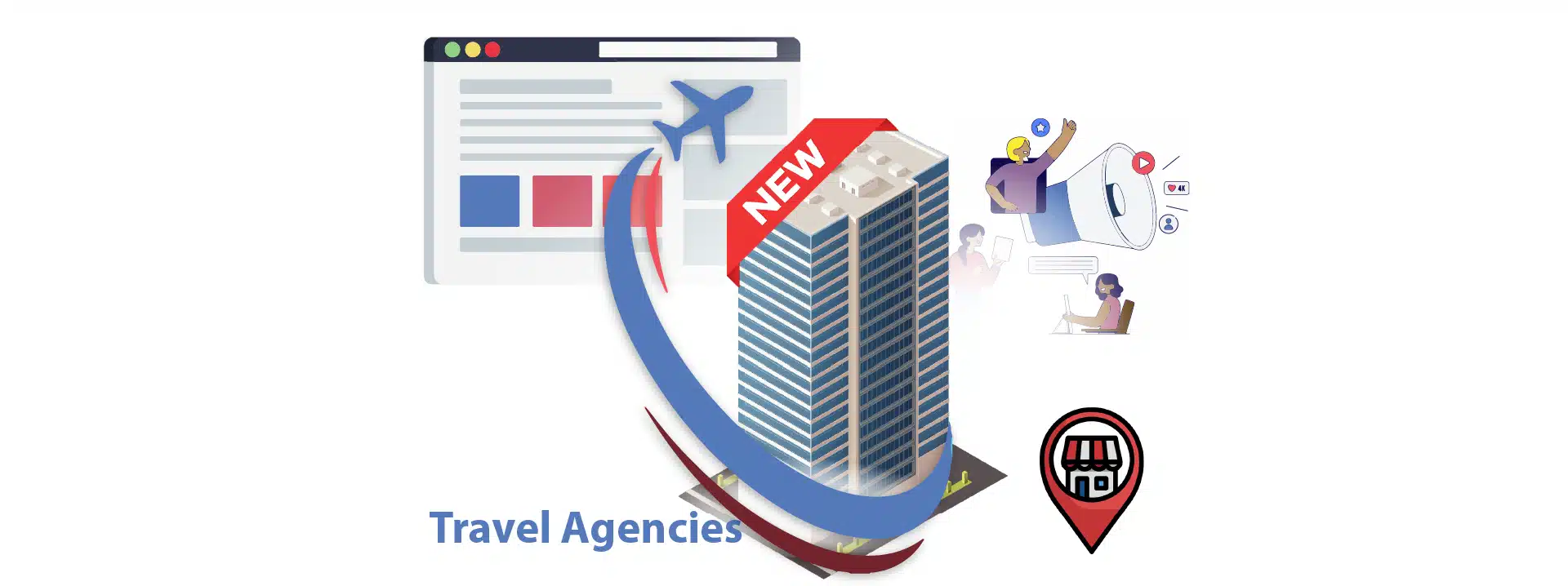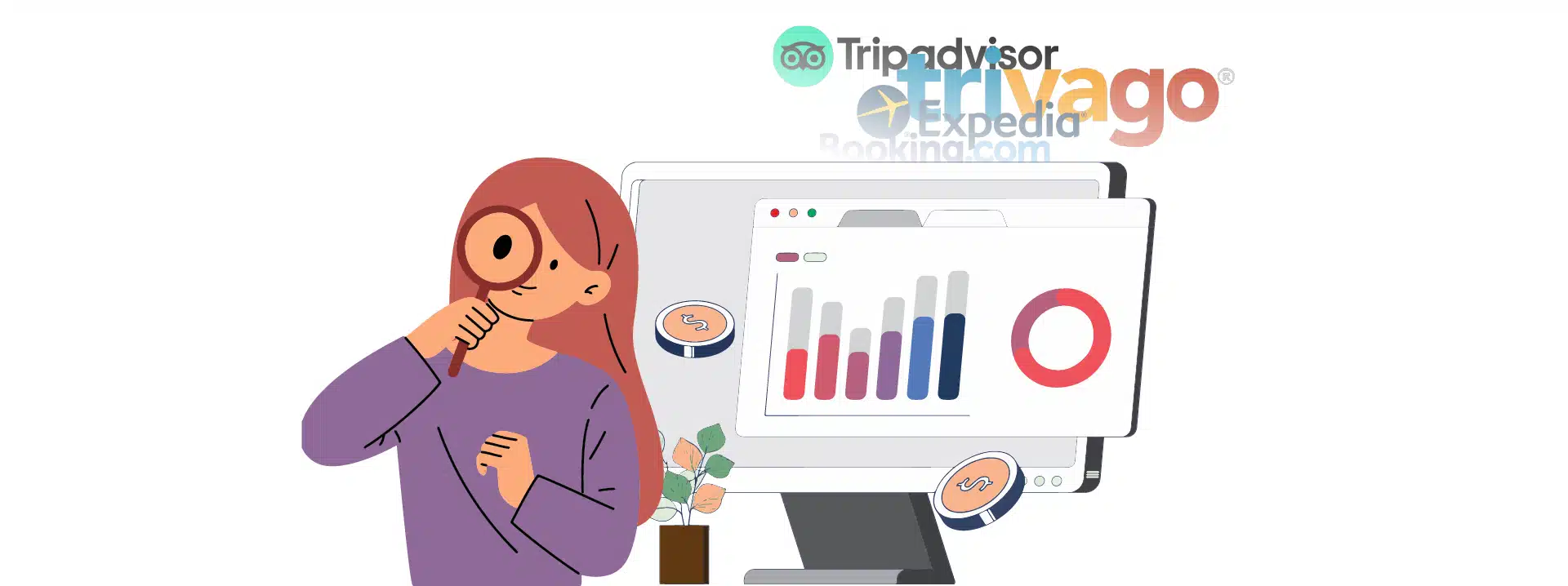A solid online presence is one of the best ways for any hotel to increase direct bookings and boost its brand value.
A cost-effective and organic way to achieve prominence online consists of ranking higher on SERPs (Search Engine Result Pages).
With most travelers worldwide relying on Google, Bing, Yahoo, and the like to plan their travels, a listing on the top of the first page of search engines holds much value.
But how does a hotel rank higher on Google?
Before we discuss hotel SEO and tips to rank higher on search engines, let us quickly understand what SEO means.
What is SEO?
Search Engine Optimization is the process of improving your website so that Google places it at the top of search results.
Search engines use crawlers to index web pages, placing sites with relevant, up-to-date, helpful information on Page 1 of specific online searches.
One of the main benefits of SEO is that it leads to more organic traffic to your website than any other form of marketing or advertising, including social media.
Moreover, SEO typically has a long-term effect and results in more direct bookings.
A secret weapon in any hotel’s marketing arsenal, hotel SEO is still underused by most small establishments, which is a missed opportunity to rank higher on Google and strengthen your brand.
Hotel SEO – Tips to rank higher on Google
Hotel SEO comprises on-page and off-page SEO techniques you can implement on your website in various ways.
Make your hotel website user friendly
One of the primary steps to help rank higher on Google is to make your website easy to navigate. Search engines prefer web pages that are clean, uncomplicated, and well-structured.
Therefore, your web design must be simple yet impacting and carry information visitors find useful.
Most importantly, being a hotel website, it should integrate a straightforward booking platform.
Reduce loading time
One of the primary aspects of any website that Google looks at is loading time. Search engines do not like web pages that take ages to display.
Thus, checking that your website loads quickly on all possible outlets (PC, tablets, mobiles) is essential.
One of the main reasons why websites lag is visual media. Thus, you must perform photo optimization, which includes reducing the size of your media without lowering its quality.
Create a mobile-friendly website
More and more travelers now use mobile devices to search for and book their business trips and holidays.
Furthermore, Google prefers websites that load quickly and are structured for smaller screens. Thus, a mobile-friendly hotel website has a better chance of ranking high on Google.
Schema markup
Having a website and content on it is just not enough. You also need to structure it properly so the search engines can better understand the content. This is known as schema markup. And the more Google can easily comprehend the content, the more chance it will rank it on Page 1.
The first step is ensuring every website page has a purpose. Admittedly, the end goal is to sell rooms, but that does not mean you bombard the visitor with “book now” prompts everywhere.
Information across the website should relate to different aspects of your hotel. You can have separate pages for rooms, on-site restaurants, activities, local excursions, the history of the hotel, and so on.
Format your pages
Page formatting is a part of schema markup, wherein each page follows a specific structural pattern. For example, the page’s title is typically in a Header 1 (H1) font, whereas the sub-headings take H2 and H3 fonts.
Additionally, it is advisable to spread out your content and not have large clusters of written information.
You can use negative space or photos to break the content so that it is visually stimulating for the guest and simpler for search engines to categorize the page.
Have a blog
Many small bed and breakfasts or villa rentals miss on hotel SEO by not having a blog on their website.
At the same time, a blog is your number one option to continuously share high-quality, fresh content resulting in a high probability of ranking on Google.
Usually, Google prefers informative blog posts in the range of 1200 words. However, these posts should provide a genuine service to the visitor.
While some can be sales-oriented, others should tackle frequently asked questions and share travel or destination tips and the latest local news.
Basically, the content should educate readers about different aspects of your hotel, facilities, and surroundings.
Use keywords throughout your hotel website
Keyword usage is one of the primary hotel SEO tips to rank higher on Google. These keywords are phrases that visitors type when searching on Google.
To successfully implement hotel SEO, one must use keywords across the website, on various pages as well as in blogs. The use of keywords, however, should be natural and not forced. Just remember that Google looks down upon the over-stuffing of keywords.
Admittedly, generic keywords are much contested, and thus, it is tough for a small hotel with a minimal online presence to rank high for such searches. So, while you can use keywords like “hotel in Greece,” the likely hood you’ll rank on Page 1 for this search result is slim.
Instead, it’s best to use long-tail keywords that are localized. For example, if your hotel is in Naxos, you can create content around the keyword “best boutique hotel in Naxos.”
Similarly, when writing blog posts, you can write an article on the “best cafes in Naxos.” In all probability, people searching for these keywords are planning a trip to Naxos.
By ranking the article high on Google, you can lead them to your website through the blog post.
Backlinks and broken links
Another tip for a hotel to rank higher on Google is to optimize its website by removing broken links. These are internal or external links that no longer lead to the right page.
Again, doing the above tells Google that your website is up-to-date and not spammy, which makes the search engine treat your content as authoritative.
While we have been talking about on-page SEO techniques, a tip to increase your rank on Google using an off-page approach is to get high-quality backlinks.
Backlinks from websites with high DA (Domain Authority) help boost your website’s credibility, informing search engines that it can be trusted with the information you share. This then increases the probability of Google ranking you higher.
Some familiar places you can get backlinks from are local tourism websites, reputable blogs, neighboring establishments, and listing sites.
Complete your Google Business Profile
Google Business Profile is a free local service that allows businesses to claim their “property.”
It is essential to list your hotel on the listing and ensure that all the information, such as your address, telephone number, email, and restaurant opening hours, is complete and up-to-date.
Again, this tells Google that you are a reputable and genuine business and your website is trustworthy.
Hire a hotel marketing agency for hotel SEO
While the above hotel SEO tips to rank higher on Google are relatively straightforward to implement, the entire process requires time and in-depth knowledge about changing Google algorithms and search engine preferences.
Thus, the best way to initiate hotel SEO is to hire a hotel marketing agency, such as Adigital, that can provide end-to-end business solutions.
In addition to handling website design and brand strategy, we can manage your content, perform keyword analysis, implement SEO, and monitor results to regularly modify the marketing strategy for the best results.



